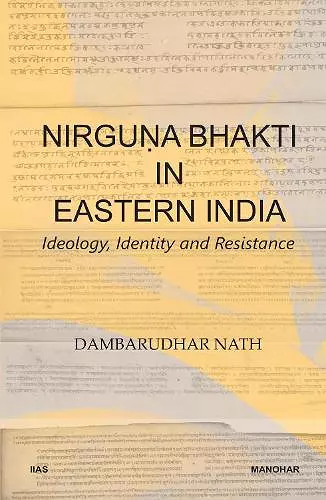Nirguna Bhakti in Eastern India
Ideology, Identity and Resistance
Format:Hardback
Publisher:Manohar Publishers and Distributors
Published:1st Jan '24
Should be back in stock very soon

This insightful examination of the Bhakti movement reveals its historical roots and critiques its evolution, particularly through the lens of the Mayamara sect in Nirguna Bhakti in Eastern India.
The book Nirguna Bhakti in Eastern India delves into the historical context that led to the rise of the radical faction within the Bhakti movement. By exploring the social and political ramifications, the author highlights how this spiritual movement extended across eastern regions of India in the early sixteenth century. The narrative captures the essence of the movement as it embraced a diverse population, from Koch Behar in North Bengal to the foothills of Arunachal Pradesh, bringing many under its inclusive banner.
This work offers a thorough and critical examination of the mystical movement's evolution from the sixteenth to the seventeenth century, with a particular focus on the Mayamara sect. The sect's claims of being nirguna—devoid of form—are explored in relation to its teachings, social ideologies, and political influences. The author scrutinizes the prevailing theory that the Bhakti movement ultimately failed to achieve its original goals of promoting democracy and egalitarianism, suggesting instead that it succumbed to conservative forces that resisted change.
Through a detailed analysis of the ideological and philosophical contributions of Sankaradeva, the founder of the Bhakti movement in this region, Nirguna Bhakti in Eastern India challenges readers to reconsider the movement's legacy. The book not only recounts historical events but also engages with the deeper philosophical questions surrounding the movement's impact on society and its enduring significance in contemporary discourse.
ISBN: 9789394262256
Dimensions: 240mm x 160mm x 50mm
Weight: unknown
576 pages